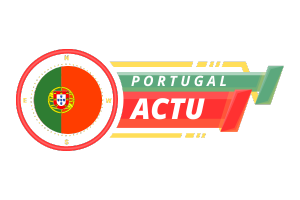
Cod in Portugal, the big star
Cod in Portugal is like wine in France, a national emblem. This fish, which has been consumed in excess for over a hundred years, is part of Portuguese gastronomy. Portuguese cuisine is largely fueled by the Atlantic Ocean, and the star of this gastronomy is, of course, cod.
Cod in Portugal, the big star
With 900 kilometers of coastline, Portugal's history is intimately linked to the sea. Let's not forget that the country has a long history of great navigators, such as.., Vasco de GamaHenri the Navigator, Pedro Álvares Cabral and Magellan.
Alongside these great navigators who have made the country famous, the country has always been a fisherman's country - that's their history, and there's no denying it. The marine territories are so vast (larger than the country itself) that they have enabled the fisherman to have a varied and abundant catch. However, what made the country rich in the first place was the fish, which used to be eaten every day, but is now a little less so, as it has become an expensive product.
The origins of this fish in Portugal
The first traces of this fish being caught and salted in Portugal date back to the 14th century. It was at the time of the discoveries that the Portuguese saw in this fish the ideal product, capable of withstanding long sea voyages. The Vikings were the pioneers of fishing, leaving the fish to dry in the open air in the absence of salt. In the Middle Ages, salt was a commodity that the Portuguese owned and used as a currency of exchange with the Nordic countries, from which they imported fish in exchange for salt.

This fishery began in Greenland, in a series of tall ships to be replaced by trawlers. Drying and salting (the traditional Portuguese process) without chemicals preserves the nutritional properties of the fish. This process conferred unique characteristics of aroma, flavor and texture. It was at the time of the discoveries that the " bacalhau da Noruega "appeared.

Around 1506, a tax was introduced on cod entering ports between the Douro and Minho rivers. In the meantime, fishing by Portuguese fleets remained irregular, and was finally interrupted during the Philippine dynasty. Consumption became widespread around the 17th century, and Portugal resumed its voyages to Greenland in 1835, through the Pescarias Lisbonense company.
For centuries, this fish was not considered a first-choice food. It wasn't until 1790, however, that its consumption evolved, becoming part of the eating habits of the middle and upper classes. Cod began to be eaten by aristocrats, doctors, foreigners and wealthy people living in the Bairro Alto, Príncipe Real and Estrela districts. The Royal Household even had its own suppliers in the 18th and 19th centuries.
The Estado Novo also had a direct impact on the direction of Portugal's identity. In 1937, the first and only cod workers' strike took place under Salazar's regime, from which emerged a series of measures to support, protect and encourage these fishermen.

The heyday of fishing by the Portuguese fleet came in the 1950s and 1960s, when production of this fish increased by around 60% compared with 1934. Trips lasted around six months, and the return trip was always made with fewer men than at the start.
Working conditions were not the most favorable, and they were dangerous. Fog and icebergs were the main obstacles for cod fishermen, followed by strong winds and swells. Working days that tested their stamina included primitive tools such as hook and line fishing, deck duties and the sheer constraint of salting on board.









